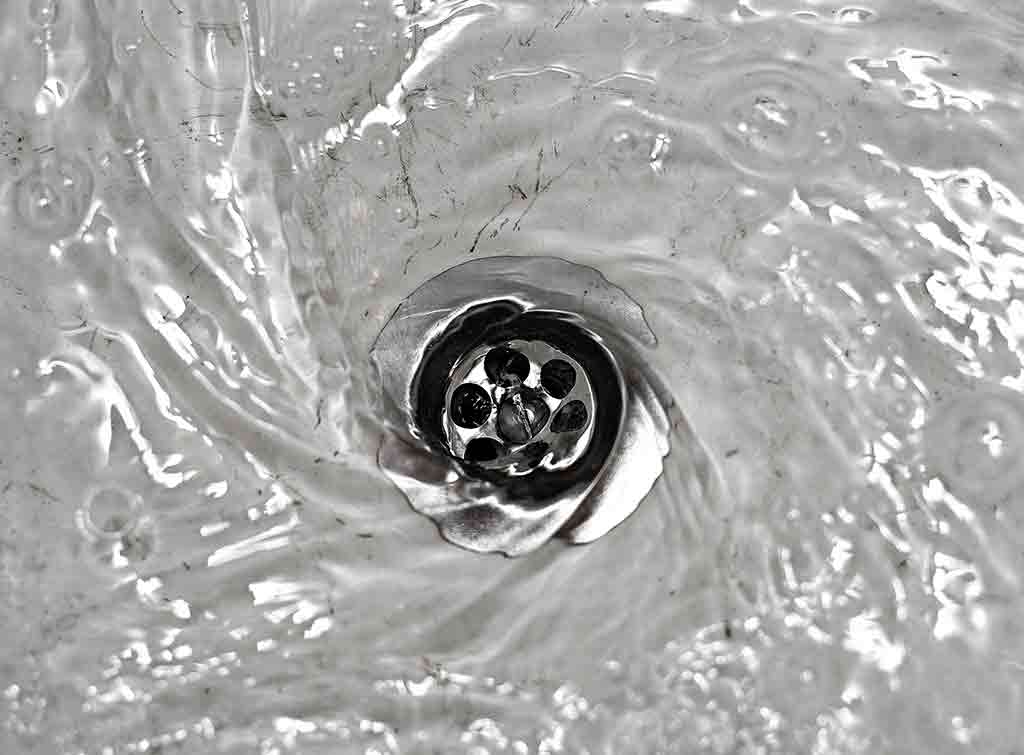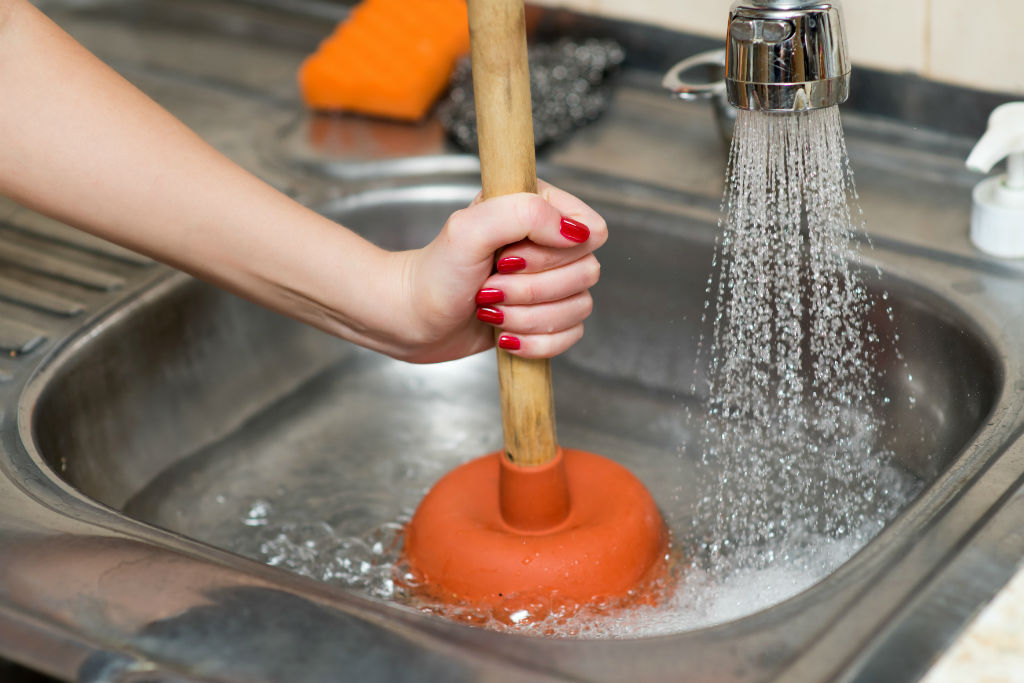Recommended Tips For Fixing A Slow-Draining Sink Fast
Recommended Tips For Fixing A Slow-Draining Sink Fast
Blog Article
This post on the next paragraphs relating to How to Fix a Slow Draining Sink is truly fascinating. Don't bypass it.

Introduction
We have actually all been there: You're brushing your teeth or washing your hands, and you see the water merging in the sink. Rather than quickly swirling away, it lingers, turning your once-refreshing morning regimen into a mini overload scene. A slow-draining sink isn't simply annoying; it's usually a sign of bigger plumbing concerns lurking under the surface. Fortunately is that many slow-draining sinks can be fixed with a little expertise, a couple of fundamental devices, and some persistence. Prepared to tackle this project head-on? Let's roll up our sleeves and dive right in.
Understanding the Causes of a Slow-Draining Sink
Before you begin poking around in your pipes, it helps to know what could be creating the slowdown. Recognizing the source makes it less complicated to select the best repair.
Devices and Products You'll Require
The right tools make all the distinction. The good news is, you will not require a totally equipped plumbing technician's van to finish the job.
Step-by-Step Overview to Repairing a Slow-Draining Sink
Now, let's get into the nitty-gritty. This step-by-step process will guide you via straightforward techniques to restore your sink's water drainage.
Action 1: Remove and Clean the Stopper
Often, the stopper (that small plug you lower to obstruct water) is the initial offender. Remove it thoroughly and wipe any hair or substance trapped around its base. Rinse it thoroughly before putting it back in place.
Action 2: Use a Plunger to Dislodge Particles
Got that bettor ready? Placement it over the drainpipe and provide it a few company pumps. The idea is to develop suction that can loosen any type of blockage. If you see little bits of particles floating up, you're on the appropriate track.
Action 3: Try a Drainpipe Snake or Cable Wall Mount
If the bettor doesn't work, it's time to highlight the drainpipe snake. Delicately feed it into the drain and twist as you go. You might really feel some resistance-- that's most likely the blockage. Maintain turning and drawing until you eliminate the obstruction. If you do not have a drainpipe snake, a straightened cable hanger can operate in a pinch.
Step 4: Use a Do It Yourself Drainpipe Cleanser
An all-natural cleaner made from cooking soft drink and vinegar can break down recurring crud. Put half a cup of cooking soft drink right into the drain, complied with by half a mug of vinegar. Allow it fizz for around 15 minutes, then flush with warm water. This chemical reaction commonly does marvels for minor obstructions.
Tip 5: Reconstruct and Evaluate the Sink
Placed every little thing back with each other and run the tap. Does the water now swirl down the tubes at a commendable rate? If yes, provide yourself a pat on the back. If not, do not misery-- there are still a few even more tricks up your sleeve.
Essential Tools for DIY Repairs
A plunger is your go-to beginning point. A small, sink-sized bettor develops suction that can dislodge small blockages. For more relentless obstructions, a drain snake (in some cases called a plumbing's auger) functions marvels. A set of gloves, a flashlight, and maybe a pair of protective goggles are additionally convenient.
Suggested Cleansing Solutions
Moderate dish soap and hot water can aid break down greasy accumulation. A combination of baking soft drink and vinegar is a tried and true natural remedy, and chemical cleansers supply an even more environment-friendly strategy. Maintain chemical drain cleansers as a last resource, as they can be extreme on your pipes.
Typical Offenders Behind Slow Drain
So, what's clogging points up? Typically, it's a mix of everyday particles-- assume hair, soap residue, tooth paste deposit, and leftover food fragments. Over time, these little bits collect and cling to the pipeline walls, slowly narrowing the flow and making it harder for water to pass through. Sometimes, mineral deposits from hard water can also contribute to the crud, producing the excellent storm for persistent clogs.
When is it Time to Take Action?
If you discover the water draining pipes slower than normal, it's a good concept to step in sooner rather than later. Waiting also long can bring about complete blockages, unpleasant odors, and even pipeline damages. If the water takes more than a couple of secs to clean out after switching off the tap, consider it a warning and prepare to put on your DIY hat.
Safety First: Precautions and Prep work
Before you launch into unclogging mode, consider security. You're handling potentially unclean water and debris, so slip on a set of gloves. If you're using chemical cleaners, guarantee the space is well-ventilated and follow the directions on the tag.
Protective Equipment and Office Arrangement
Set some old towels or rags around the sink location to catch dashes. Clear away any kind of products that might enter your method, like soap dispensers or tooth brush holders. Make certain you have good illumination-- get a flashlight if required.
Alternative Methods for Stubborn Clogs
Not all clogs are developed equivalent. If your sink still rejects to cooperate, take into consideration these alternative remedies.
Baking Soda and Vinegar Technique
We currently touched on this, however it deserves noting again. This gentle, green technique is more secure than chemical cleaners and often fairly efficient.
Chemical Drain Cleansers
Enzyme-based cleaners utilize natural germs to digest organic matter. They're an excellent option if you're wanting to stay clear of rough chemicals. Just keep in mind, they might take a bit longer to function their magic.
Chemical Drain Cleaners: Pros and Cons
Chemical cleansers can blast via challenging blockages fast, yet they're not without downsides. They can generate warm and fumes, damage pipes if used exceedingly, and position environmental threats. Use them sparingly, and always comply with the directions very carefully.
Safety Nets to Keep Your Sink Flowing
Prevention is the very best treatment. By adopting a couple of basic routines, you can maintain your sink from decreasing to begin with.
Regular Cleaning Up Routines
Clean down the sink container and component location consistently. Eliminate hair or food fragments before they have an opportunity to wash down the drain.
Staying Clear Of Dangerous Compounds Down The Tubes
Think twice before unloading coffee premises, oil, or fibrous vegetable scraps down the sink. These wrongdoers hold on to pipe wall surfaces, creating clogs over time.
Regular Maintenance Checks
Schedule a quick regular monthly evaluation. Run warm water with the sink for a few mins, paying attention to the flow. If it seems slow, act quick prior to it becomes a full-blown obstruction.
When to Call an Expert Plumber
In some cases, despite exactly how tough you attempt, that block simply won't budge. That's when it's time to bring in the pros.
Indications That Suggest a Much More Severe Issue
If your sink drains slowly despite multiple attempts, or if you see water backing up in various other fixtures (like your shower or commode), you may have a much more major pipes issue hiding deeper in the system.
Balancing DIY Initiatives with Professional Assistance
While DIY can conserve you money and supply a feeling of accomplishment, there's no pity in calling a specialist. An expert plumbing technician can assess your entire pipes setup, making certain there's no underlying damage or long-term trouble that can cost you more in the future.
Contrasting Prices and Long-Term Solutions
Prior to deciding, take into consideration the big picture. An economical, quick fix might fix the trouble momentarily, but purchasing a more long-term solution could conserve you money and stress and anxiety in the long run.
Considering the Expenditures of DIY vs. Specialist Repairs
Do it yourself fixes usually cost little bit more than the price of a plunger or a container of cooking soda. Expert solutions, on the other hand, included a price tag however may stop repetitive problems and expensive repairs later.
Buying High Quality Fixtures and Upgrades
If your sink's layout adds to frequent obstructions, it may be worth updating to higher-quality components or modifying the pipes design. Consider this an investment in your house's functionality and comfort.
Verdict
A slow-draining sink can feel like a minor irritability, but it's often a sign that your plumbing requires a little TLC. By recognizing the source, employing the right tools and strategies, and committing to easy safety nets, you can keep your sink moving easily. And when all else fails, never ever hesitate to call a professional-- your home's pipes deserves the investment in treatment and maintenance.
Three Common Ways to Fix a Slow Drain
Baking Soda Method
Boil a full pot of water. Measure out cup of baking soda and pour it down the drain. Then take cup of the magical cleansing substance known as white vinegar and drop that down there too. Allow the mixture to fizz in the drain for five minutes as the vinegar and baking soda combine. Now dump in that whole pot of boiling water. This combination of cleaning substances should clear out anything that is causing your sink to drain slowly. If it doesn t...
Zip-It
If the baking soda method doesn t clear out your drain, it may be because a significant amount of hair and/or other debris has collected there and you need to remove it. Purchase a Zip-It tool at any home improvement or hardware store and insert it into your drain. It will catch any collected hair or debris that s blocking the flow of water. Pull it out. If it s got a big clump of hair, etc. on the end, you ve probably got your culprit.
Drain Cleaner
If these methods don t work, there is the standard drain cleaner that you can also buy in a hardware store or even your local grocery store. It s better if you can use a household solution, but these drain cleaners often work in a pinch. They re very simple to use. You generally just dump them in your drain and wait. If even this method is not effective, it may be time to call the plumber.
https://www.mrrooter.com/oneida/about-us/blog/2017/july/three-common-ways-to-fix-a-slow-drain/

I was shown that write-up about Solved! How to Fix a Slow Sink Drain from a friend on a different blog. Liked our content? Please quickly share it. Help other people check it out. Thanks for taking the time to read it.
Source Report this page